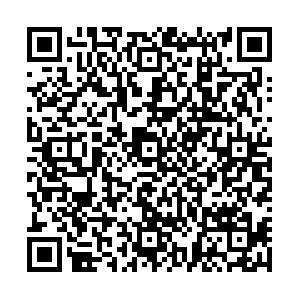| [1] |
Olweus D. Bullying at school:what we know and what we can do[J]. British Journal of Educational Studies, 1994, 42(4):12-17.
|
| [2] |
Roland E. Aggression, depression and bullying others[J]. Aggressive Behaviour, 2010, 28(3):198-206.
|
| [3] |
王海涛, 王宇, 董玉雪, 等. 受欺负学生的心理韧性与学业水平的关系研究[J]. 教育学报,2017,13(6):77-82.
|
| [4] |
Sourander A, helstela L, Helenius H, et al. Persistence of bullying from childhood to adolescent:a longitudinal 8-year follow-up study[J]. Child Abuse and Neglect, 2000, 24(7):873-881.
|
| [5] |
Bronfenbrenner U, Morris PA. The ecology of developmental processes[J]. R.m.lerner Handbook of Child Psychology, 1998(1):993-1028.
|
| [6] |
Espelage D, Swearer S. Research on school bullying and victimization:What have we learned and where do we go from here[J]. School Psychology Review, 2003, 32(3):365-383.
|
| [7] |
Boelby J. Attachment and loss:retrospect and prospect[J]. American Journal of Orthopsychiatry, 1982, 52(4):664-678.
|
| [8] |
Graig W, Peters R, KoarskI. Bullying and victimization among Canadian school children[J]. Applied Research Branch, Human Resources Development, 2002, 84(6):1621-1646.
|
| [9] |
Pontzer D. A Theoretical Test of Bullying Behavior:Parenting, Personality, and the Bully/Victim Relationship[J]. Journal of Family Violence, 2010, 25(3):259-273.
|
| [10] |
Bowers L, Smith PK, Binney V. Perceived family relationships of bullies, victims and bully/victims in middle childhood[J]. Journal of Social and Personal Relationships, 1994, 11(2):215-232.
|
| [11] |
Baldry AC, Farrington DP. Parenting influences on bullying and victimization[J]. Legal and Criminological Psychology, 1998, 3(2):237-254.
|
| [12] |
Baumrind D. The Discipline Controversy Revisited[J]. Family Relations, 1996, 45(4):405-414.
|
| [13] |
郑茹, 符筠, 段佳丽, 等. 北京市中小学生欺凌现况[J]. 中国学校卫生, 2019, 40(2):224-227.
|
| [14] |
王健, 李春玫, 谢飞, 等. 江西省高中生校园欺凌影响因素分析[J]. 中国学校卫生, 2018,39(12):1814-1817.
|
| [15] |
肖笛, 徐大真. 中职生校园欺凌现状及对心理健康影响的调查报告[J]. 职业技术教育,2017,38(35):54-58.
|
| [16] |
岳冬梅, 李鸣杲, 金魁和, 等. 父母教养方式:EMBU的初步修订及其在神经症患者的应用[J]. 中国心理卫生杂志,1993,7(3):97-101.
|
| [17] |
谢家树, 魏宇民,George Bear. 特拉华欺凌受害量表(学生卷)中文版再修订及初步应用[J]. 中国临床心理学杂志,2018,26(2):259-263.
|
| [18] |
Roland E. Aggression, depression and bullying others[J]. Aggressive Behaviour, 2010, 28(3):198-206.
|
| [19] |
Jang H, Song J, Kim R. Does the offline bully-victimization influence cyberbullying behavior among youths? Application of General Strain Theory[J]. Computers in Human Behavior, 2014,31(1):85-93.
|
| [20] |
Gieehetti D, Lynch M, Shonk S, et al. An organizational perspective on peer relations in maltreated children[M]. Family-peer relationships:Modes of linkage. Hillsdale, NJ, US:Lawrence Erlbaum Associates, 1992:345-383.
|
| [21] |
Alink Lra, Cieehetti D, Kim J, et al. Longitudinal Associations among Child Maltreatment, Social Functioning, and Cortisol Regulation[J]. Developmental Psychology, 2012, 48(1):224-236.
|
| [22] |
Koening AL, Cieehetti, Rogosch FA. Child Compliance/Noncompliance and Maternal Contributors to Internalization in Maltreating and Nonmaltreating Dyads[J]. Child Development, 2010, 71(4):1018-1032.
|
| [23] |
Shields A, Cieehetti D. Parental maltreatment and emotional dysregulation as risk factors for bullying and victimization in middle childhood[J]. Journal of Clinical Child Psychology, 2001, 30(3):349-363.
|
| [24] |
王玉洁. 父母教养方式与大学生心理健康的关系[J]. 中国临床康复,2005(32):110-111.
|
| [25] |
Baldry AC, Farrington DP. Protective factors as moderators of risk factors in adolescence bullying[J]. Social Psychology of Education, 2005, 8(3):263-284.
|
| [26] |
Kingery JN, Erdley CA, Marshall KC, et al. Peer Experiences of Anxious and Socially Withdrawn Youth:An Integrative Review of the Developmental and Clinical Literature[J]. Clinical Child and Family Psychology Review, 2010, 13(1):91-128.
|
| [27] |
Paquette D. Theorizing the father-child relationship:Mechanisms and developmental outcomes[J]. Human Development, 2004, 47(4):193-219.
|
| [28] |
Flouri e, Buchanan A. Life satisfaction in teenage boys:The moderating role of father involvement and bullying[J]. Aggressive Behavior, 2010, 28(2):126-133.
|
| [29] |
Kochenderfer-ladd B, Skinner K. Children's coping strategies:Moderators of the effects of peer victimization[J]. Developmental Psychology, 2002, 38(2):267-278.
|
| [30] |
Spada MM, Caselli G, Manfredi C, et al. Parental overprotection and metacognitions as predictors of worry and anxiety[J]. Behavioural and Cognitive Psychotherapy, 2012, 40(3):287-296.
|
| [31] |
Rubin kh, Burgess KB, Hastings PD. Stability and social-behavioral consequences of toddlers inhibited temperament and parenting behaviors[J]. Child Development, 2002, 73(2):483-495.
|

 点击查看大图
点击查看大图



 下载:
下载: